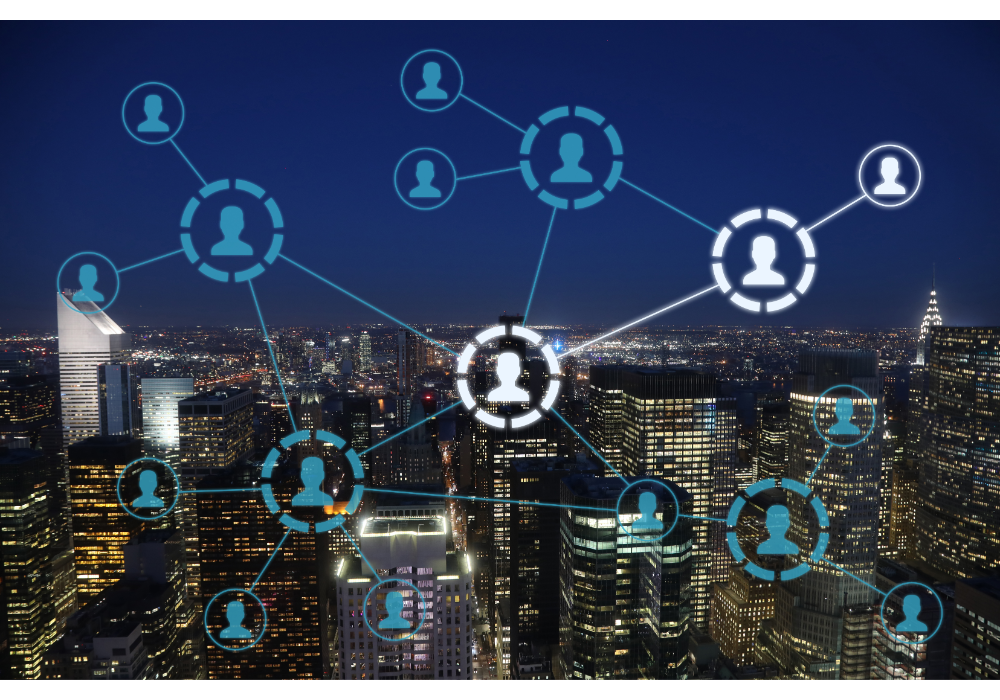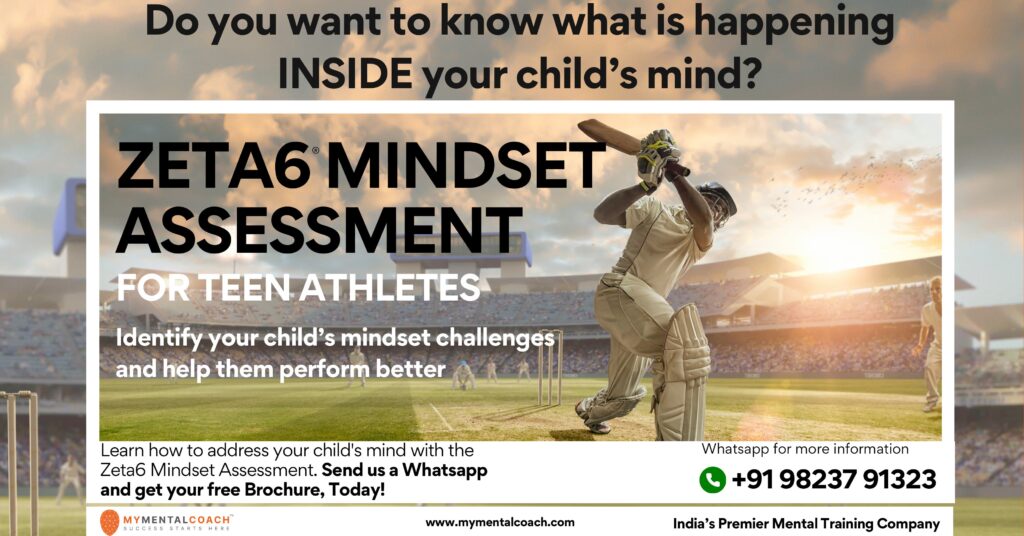Social media is the new form of reality in today’s day and time. Or should we say “virtual reality”? Everybody from children, athletes, teenagers, students, entrance exam students, young adults, corporate professionals to even parents is on social media now.
Hey! I am no different and I’m nobody to point fingers as I’m no saint but in this article brought to you by MyMentalCoach, we will see when social media become a problem and how can we teach positive social media habits and digital well-being because let’s be honest social media is here to stay and so are you. So let’s try and co-exist!
This article, crafted by sports psychologists, is designed to be highly practical, incorporating mental training techniques used by elite athletes to help develop effective social media habits for everyone.
How does Social Media Affect us?
Social media, for all its quirks and downfalls, has become an undeniable force in our lives. While we may indulge in the endless scroll and carefully curated feeds, it’s undeniable that this platform fostered connection during challenging times.
Remember the isolation of COVID-19? Social media became a lifeline. It allowed a grandmother, far from her family, to stay connected with a video call.
Businesses, unable to operate traditionally, found new audiences and conducted transactions online.
Education, too, adapted, with students learning and teachers instructing through virtual classrooms. In these moments of disruption, social media stepped up, proving its potential as a powerful tool for connection and community.
The effects of social media are multifaceted and complex, including both positive and negative aspects. Let’s look at a few of them with examples:
Why We Love Social Media?
Connection and Belonging:
Social media can bridge geographical and social barriers, fostering connections with loved ones and communities based on shared interests. This can combat loneliness and isolation, offering a sense of belonging and support.
For example: Moving to a new city can be isolating. Joining a local Facebook group for dog lovers connects you with like-minded individuals, facilitating friendships and reducing loneliness. You can arrange dog park meetups, share care tips, and even find a walking buddy for your furry friend.
Self-expression and Creativity:
Platforms allow individuals to share their thoughts, experiences, and talents with a wider audience. This can boost self-esteem, cultivate a sense of purpose, and connect with like-minded individuals.
For example: Following trusted news organizations on Twitter keeps you informed about current events. Additionally, participating in online discussions about climate change or social justice issues can raise awareness and inspire action. You might even connect with others passionate about the cause and collaborate on local initiatives.
Information and Awareness:
Social media offers instant access to diverse perspectives, news, and educational resources. It can facilitate social movements, raise awareness for important causes, and promote positive change.
For example: Acquire new skills and knowledge at your own pace, regardless of location or financial constraints. This could involve learning a new language, delving into coding, or exploring specialized fields like astrophysics.
Entertainment and Relaxation:
Sharing humorous content, engaging in online games, and following creative individuals can provide joy and laughter, contributing to relaxation and stress reduction.
For example: Feeling stressed? Scrolling through a comedic Twitter thread or watching funny pet videos on TikTok or Instagram can provide a quick escape and relieve tension. Participating in online challenges or creating memes with friends can also add a dose of laughter and connection to your day.

Why and When is Social Media Dangerous?
Before exploring the potential downsides, let’s understand when social media might cross from a helpful tool to a problematic presence. Imagine it like salt: a dash enhances your meal, but too much overwhelms the flavor.
The first red flag appears when scrolling starts impinging on crucial activities. Is study time sacrificed for likes? Does practice get sidelined for viral videos? Remember, social media is there for you and not the other way around.
Second, consider the possibility of addiction. Similar to how a cigarette delivers a dopamine rush, studies suggest social media triggers similar bursts every few seconds. This can create a dependence, a need for that “high” that overshadows real-life engagement.
Watch this documentary video titled,” This Completely Changed How I Use Social Media” to get an overview of how social media affects an individual.
Now let’s look into the negative effects of social media.
Addiction & Distraction:
Compulsive Checking:
The constant stream of notifications and the dopamine rush of likes can be addictive. Imagine feeling compelled to check your phone every few minutes, even during important tasks, hindering your productivity and focus.
Lost Productivity:
Hours spent scrolling through endless feeds can quickly add up, taking away time for work, studies, or meaningful social interactions. Imagine missing deadlines or neglecting responsibilities due to excessive social media use.
FOMO (Fear of Missing Out):
Inadequacy and Exclusion:
Imagine seeing friends’ pictures from exciting events you weren’t invited to, triggering feelings of isolation and inadequacy. This constant comparison to others’ seemingly perfect lives can fuel FOMO and negatively impact self-esteem.
Anxiety and Depression:
The constant pressure to keep up and the fear of missing out can contribute to anxiety and depression. The negative self-comparison and feelings of inadequacy can further worsen these conditions.
Low Self-Esteem:
Constantly comparing oneself to others can lead to a decline in self-esteem and feelings of worthlessness. This can impact personal relationships and overall well-being.
Sleep Disturbances:
The blue light emitted from screens and the stimulating nature of social media can disrupt sleep patterns. This, in turn, can exacerbate negative feelings and hinder cognitive function.
Productivity Decrease:
The urge to constantly check social media can distract from tasks and decrease productivity. This can lead to feelings of guilt and further contribute to anxiety and stress.
Mental Health:
Anxiety & Depression:
Imagine spending hours comparing your everyday life to the seemingly perfect vacations and achievements showcased online. This constant social comparison can fuel feelings of inadequacy and contribute to anxiety and depression, especially for young users.
Disrupted Sleep:
The blue light emitted from screens and the stimulating nature of late-night scrolling can disrupt sleep patterns. This lack of quality sleep can further exacerbate negative feelings and hinder cognitive function.
Cyberbullying:
Online platforms, unfortunately, can become breeding grounds for bullying and harassment. Imagine the emotional toll of receiving hurtful comments or being excluded from online groups, leading to increased isolation and emotional distress.
Privacy & Security:
Data Breaches:
Sharing personal information, like your home address or birthday, online carries risks. Imagine the stress of a data breach exposing your information, potentially leading to identity theft or targeted scams.
Targeted Advertising:
Ever noticed ads eerily matching your recent online searches? Social media platforms track your activity to personalize ads, raising concerns about privacy and the potential misuse of your data.
Misinformation & Manipulation:
Distorted Worldview:
Imagine encountering fabricated news articles or biased opinions disguised as facts. This spread of misinformation can distort our understanding of the world, fuel polarization, and hinder critical thinking.
Manipulation:
Malicious actors can exploit social media to spread propaganda or manipulate public opinion. Imagine falling victim to a carefully crafted online campaign that exploits your emotions or biases.
Watch this relatable video titled,” How to Stop Doom Scrolling | Tips to break your social media addiction” to decrease mindless scrolling.

Step-by-Step Guide to Mindful Social Media Use
You must be thinking that’s a strange term, “mindful social media use”, but the matter of fact is that mindfully using social media makes all the difference and the power lies in perspective. By simply shifting how you approach these platforms, you can transform them from time-wasters into tools that enrich your life.
Let’s explore this shift together and discover the secrets of mindful social media use!
To understand this better we have broken it down into two mindful moments: what to consider before you unlock your phone and start on the scroll, and what to keep in the back of your mind while you’re actively browsing.
By approaching social media with this two-pronged strategy, we can navigate it more consciously and reap its benefits.
Before You Scroll
Set intentions:
Ask yourself, “Why am I opening this app?”. Is it to connect with specific people, learn something new, or just passively scroll? Knowing your purpose helps avoid mindless browsing.
Before you grab your phone:
Take a pause. Ask yourself, “Is this a mindful choice, or am I just filling time?” Be honest! If mindless scrolling beckons resist the urge. There’s a whole world (and your goals) waiting for your attention.
Schedule breaks:
Decide on designated times for social media and stick to them. Consider using apps that limit your daily usage or silence notifications during certain periods.
Curate your feed:
Unfollow accounts that make you feel bad about yourself or promote unrealistic standards. Follow positive, inspiring, and informative accounts instead.
Read this article titled, “Digital Health: A Beginner’s Guide to Healthy Social Media Habits” to learn more information about using social media mindfully.
While You’re Scrolling
Be present:
Pay attention to how you feel as you scroll. Do certain posts trigger negativity or envy? Pause and ask yourself why before engaging further.
Engage consciously:
“Like” and comment with intention, not just out of habit. Share thoughtful content that adds value to others’ lives.
Fact-check:
Be skeptical of sensational headlines and information. Verify claims before sharing and engage in respectful discussions.
Be mindful of comparisons:
Remember, online portrayals are often curated and don’t reflect the full picture. Celebrate your unique journey instead of comparing yourself to others.
Focus on real connections:
Use social media as a tool to deepen existing relationships, not replace real-life interactions. Schedule phone calls, meetups, or video chats instead of just online interaction.
9. Be mindful of influential news:
Social media can be an emotional rollercoaster. Watch out for inflammatory content or negativity bias. These can trigger strong feelings and distort your perspective. Be critical of what you see, and curate your feed for sources that uplift and inform you.
5 Examples of Smart Social Media Habit
Mindful intention:
Instead of opening Instagram mindlessly, set an intention to connect with a specific friend you haven’t spoken to in a while. Search for their profile and leave a genuine comment on their latest post.
Feed curation:
Unfollow accounts that constantly promote unrealistic beauty standards and instead, follow positive body image advocates or artists whose work inspires you.
Present scrolling:
While scrolling through Facebook, notice a post that makes you feel insecure. Pause, acknowledge the feeling, and ask yourself why it triggered you. Choose not to engage further and instead, seek out something uplifting in your feed.
Conscious engagement:
Before retweeting a news article, take a moment to verify the source and information. Share it only if you believe it’s accurate and contributes positively to the conversation.
Real connections:
Use Facebook to organize a virtual game night with friends instead of just liking their vacation photos. This fosters deeper interaction and shared experiences.

So Ready to Make a Change?
Imagine waking up to a social media feed curated just for you, filled with inspiration, uplifting content, and genuine connections. Imagine feeling empowered by your online presence, sharing positivity, and sparking meaningful conversations. This isn’t a dream; it’s the power of mindful social media use.
By following these steps, you can transform your scroll into a source of hope and personal growth. Start your journey today and discover the vibrant online oasis that awaits you!


